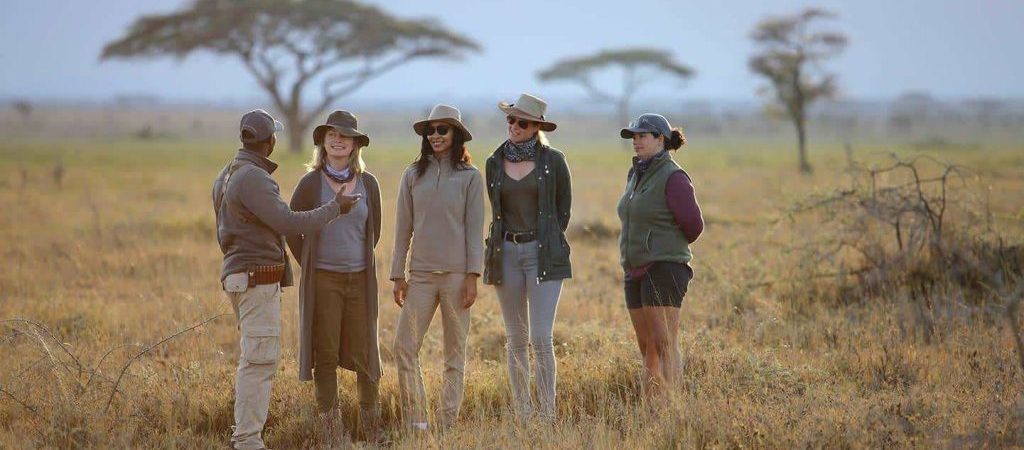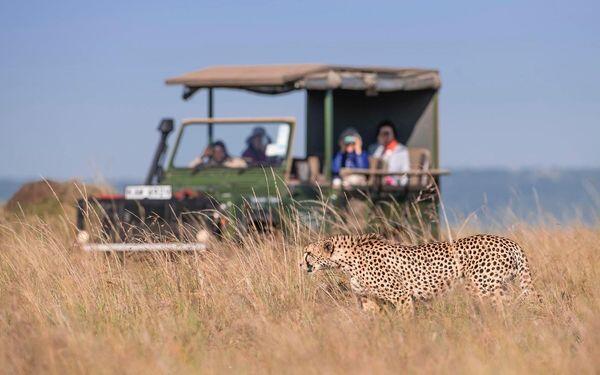What Not To Do In A Safari? Embarking on a safari is an exciting and memorable experience, which allows one to witness the wildlife beauty of the natural world while observing large population of wildlife species within their native habitats. However, tourists are advised to always approach a safari with respect for the environment, animal species and observe and obey the local regulations that they are supposed to follow in order to ensure a safety and responsible adventure. Therefore, in the context below; we will delve into examples of certain things that visitors should avoid while on a safari.

- Disrupting Wildlife.
One of the most important rules of a safari is to observe wildlife without interfering in their natural behaviors. For example, tourists are encouraged to never attempt to touch, feed or provoke animals and many others because they tend to be dangerous to the species, disrupts their natural patterns and may have severe consequences for the animal’s well-being.
- Getting too close.
Tourists are encouraged to maintain a safe and respectful distance while in the presence of the wildlife species in order to avoid harm because while tempting to get a perfect photo of the animals, disturbing the animals can lead to stress, aggression or defensive behavior. Therefore, individuals should follow all the guidelines provided by your guide or the park regulations regarding maintaining distances.
- Flash Photography.
Using flash lights in phones and cameras while taking pictures and recording videos of the animal species is generally discouraged because it can startle and stress the animals. More so, the flash photography is not only disruptive but it can also lead to adverse effects on their health. Therefore, individuals should follow the guide’s instructions on when and where it is appropriate to use flash if there is any chance to.
- Loud Noise.
While on a safari, avoid making loud noises such as; playing loud music, yelling and many others because this loud noise can tend to disturb both the wildlife and other safari goers. Silence is one of the key factors to observing animals in their natural state and ensure a tranquil environment for all the species.

- Straying from the vehicles.
Tourists exploring in national parks are advised to stay inside your safari vehicles unless your tour guide explicitly allows you to exit and this helps to avoid any harm. Walking through the wild can tend to be dangerous because of the presence of potentially dangerous animals. In addition, the guides who accompany visitors are well trained to navigate and interpret the environment hence ensuring everyone’s safety.
- Ignoring Safety Briefings.
Listening attentively to safety briefings provided by the guide before touring around the area is very important because these sessions are well designed to inform one about all the potential risks and best practices to follow while on a safari. Therefore, ignoring this information given at these short briefings can jeopardize your safety and the safety of others near you.
- Overlooking Environmental impact.
Tourists are advised to avoid littering rubbish within the protected areas and make sure to dispose of any waste responsibly. Therefore, individuals should follow the principle of “leave no Trace” in order to minimize your ecological footprints and preserve the natural beauty of the areas.
- Disregarding weather conditions.
All safaris take place in diverse climates therefore; tourists should be prepared for varying weather conditions. Therefore, they are encouraged to bring appropriate clothing and equipment and be aware of the impact that this weather can have on the animal behavior. Follow your guide’s advice on how to adapt to these climate changes while on a safari.
- Disrespecting local communities.
While on a safari, tourists always get opportunities to interact with people in the local communities therefore, they are encouraged to always approach them with respect and cultural sensitivity for example; avoid taking pictures of people without their permission and refrain from any actions, which may be perceived as a signs of disrespect or intrusive.
- Wearing perfume.
Tourists are encouraged to avoid wearing strong perfumes because Animals in the bush have very good powers of smell, and they can smell things from far away. Animals are more likely to be scared of smells that are strong or strange, like perfume. They will not go to places that smell nice, which makes it harder to find them. More so, animal species may also tend to be more violent when they smell something strange.
- Bringing inappropriate items.
Avoid carrying items that could disturb the wildlife species or which may cause you discomfort while on your safari such as; bright colored clothing, strong scents and excessive belongings which may attract unwanted attention from animals and hinder safari experience. In addition, apart from the above mentioned, there are more things that people should avoid and some of these include; avoid being impatient, follow the health precautions which are usually recommended by your guide among others.
Contact our trusted tour operators for more information about the mistakes that tourists should avoid while on a safari and then book with our tours and travel companies such as; Achieve Global safaris, Focus East Africa tours and Explore tours Rwanda who offer the best tour packages while on your safari in countries like; Rwanda, Uganda and Tanzania.


